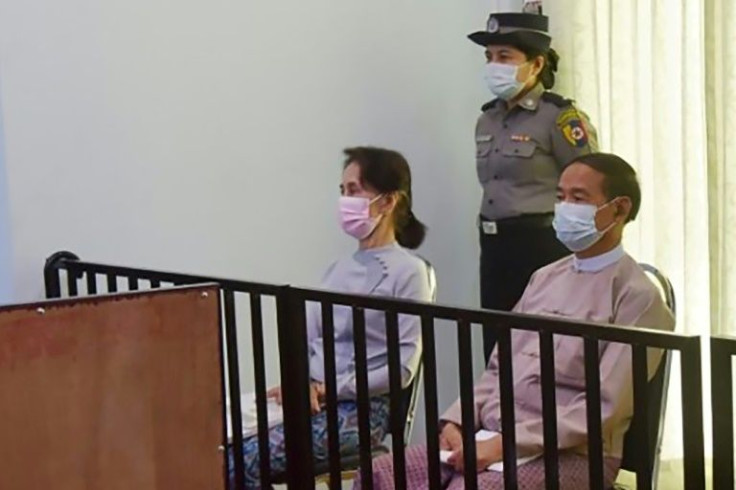Business As Usual - Myanmar Military Junta Is Here To Stay?

In a decisive shift towards a de facto recognition, neighboring Asian nations are courting Myanmar’s military, assuming the junta to stay in power for a foreseeable future.
While Western democracies have imposed a raft of targeted sanctions on the Myanmar military, which staged a coup in February this year, and its key personnel, the Association of Southeast Asian Nations (ASEAN), which is tasked with restoring democracy in Myanmar along with United Nations, has mellowed down towards the military junta and its current chair, Cambodia’s Prime Minister Hun Sen, will pay a visit to the Southeast Asian nation next month.
The Jan. 7-8 visit by Hun Sen is in contrast to the policies adopted by Brunei, the earlier chair of the 10-member trading block, against the military leadership which is shunned by many Western nations for a brutal crackdown on opposition to its rule by pro-democracy movements and ethnic minorities.
Brunei took the unprecedented step of not allowing General Min Aung Hlaing, the army general, to attend its annual summit in October.
China has already started cozying up with Myanmar military leadership and General Hlaing commissioned China’s 35B Ming-class submarine Dec 24.
According to “World Submarines Recognition Guide”, the Chinese Ming-class diesel-eclectic attack submarine is equipped to fire missiles from its torpedo tubes.
Since the February coup, which toppled the democratically elected government of Nobel Peace winner Aung San Suu Kyi, about 1,300 civilians have been killed by the security forces, Assistance Association of Political Prisoners, an independent non-profit organization, said.
In August, China transferred more than $6 million to Myanmar to fund a range of development projects.
India, which is vying for regional supremacy with China, had wasted no time to engage with the army generals. On Dec 22, India’s foreign secretary Harsh Vardhan Shringla did a two-day official visit to Myanmar and held talks with generals as part of India’s “Act East” policy, which sees Myanmar as the primary gateway for its Southeast Asia foray.
In March, India sent officials to attend the Armed Forces Day parade, which was held in the midst of a bloody crackdown on anti-coup protests and parallel National Unity Government (NUG) members.
Led by China and India, with bilateral $12 billion and $2 billion respectively, Asian nations have felt the need to come to terms with the country’s military generals to safeguard and advance their key strategic interests. Thus, the increased official engagement started of late.
Though there was no shortage of words of condemnation against the perpetrators, Myanmar received arms worth $2.4 billion. According to Bangladesh-based Daily Star, China, Russia, India, South Korea, North Korea, Israel, Ukraine, and the Philippines have been supplying weapons to Myanmar, despite the international call for lasting solutions.
Japan is still cultivating military ties with Myanmar and its National Defense Academy of Japan, a defense ministry facility, imparts training to cadets from the Myanmar military, known as the Tatmadaw. Through the program, the trainees are given combat and arms training.
After the coup, the junta declared a year-long state of emergency, which was extended until August 2023. The top brass justified their action by blaming the alleged election frauds, committed by civilian leaders, and promised to transfer power after new polls are held.
But the opposition has put up a brave fight especially in Chin state, a center of resistance. Ordinary families have boycotted military-linked companies, and opponents are too armed to launch attacks on army convoys, and in September, the national unity government – the shadow government of elected politicians, who are now exiled – called for a “people’s defensive war.”
Military generals’ success in turning the table in their favor exposed the chronic weaknesses of the UN system which in June adopted a resolution by 119 nations at the General Assembly that strongly condemned the junta’s violence against civilians and had sought an international arms embargo.
More recently, the UN refused official recognition to the Hlaing’s regime, effectively denying legitimacy.
But the Tatmadaw’s Asian neighbors do not expect them to go anywhere anytime soon.
























